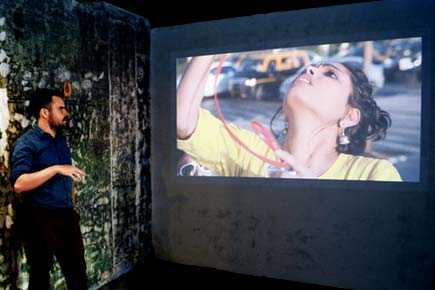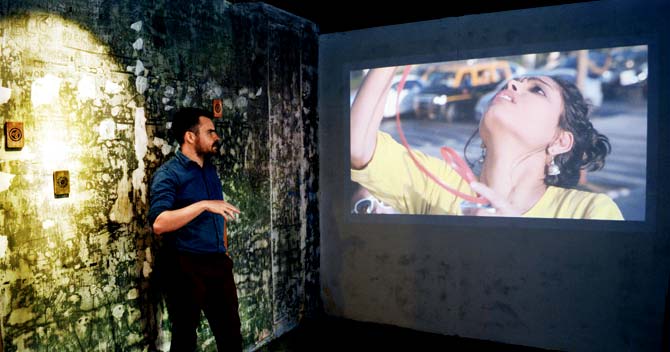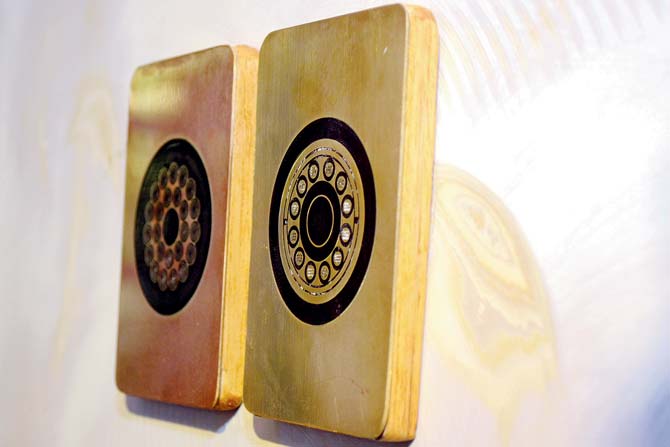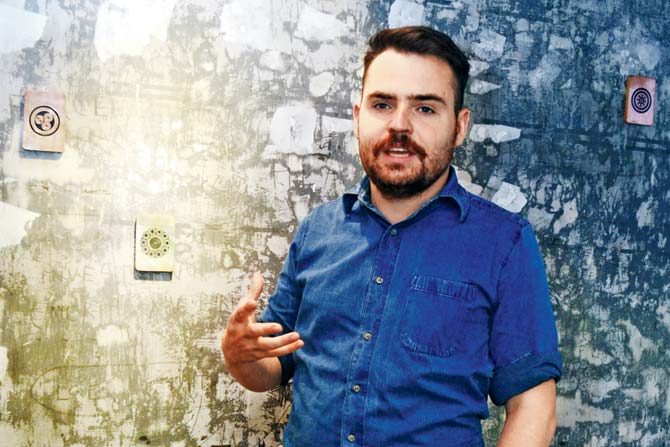A French artist paints a picture of the history and reach of power cables and telegraphic lines at an ongoing exhibition


The film is part-documentary and part-fiction, and traces the history of telecommunication systems with a closer look at how Mumbai has evolved over the years
ADVERTISEMENT
Every power cable tells a story, believes French artist Virgile Fraisse. “Did you know one of India’s leading telecommunications providers, which offers free broadband, depends on other companies for their power cables? Or that Karachi is selling broadband to India because they have the capacitors but they don’t need broadband as much as they need money?” he reveals.
Starting today, you have the opportunity to peek into the history of power cables and telecommunication through Fraisse’s exhibition SEA-ME-WE. “The title comes from the name of the underwater cables that connect the ports between Marseille and India,” he says.

Cards that depict the structures of the cables. Pics/Sneha Kharabe
The exhibition will feature Fraisse’s docu-drama of the same name, his sketches, film stills, and cultural cards that depict the structures of the cables. One section will also display images (advertisements) that are often used by telecommunication companies to sell their wares.
The highlight, though, is the film. “It is part-documentary and part-fiction. It traces the history of telecommunication systems, beginning with telegraph lines and moving to present-day high-speed optic cables. The fiction parts of the film look at how Mumbai has evolved, and how its changing economy has affected the city. In it, actors visit places such as the Bombay Stock
Exchange, a newspaper office, a post office, and other places to understand how they function, and how information is recorded and broadcast,” says Fraisse.

Virgile Fraisse
He starts off by talking about colonisation, the British using India to test their own cables and how it impacted the telegraph system in the country. On a larger scale, he explores the information fed to us daily, how we interact physically and emotionally with it and the increased significance of our virtual lives. “Every country is trying to gain control over these power lines so that they can actually control the information that is generated and broadcast,” he says.
Another screen will display Pragmatic Chaos, four short videos that are Fraisse’s thoughts on the competition organised by Netflix, who offered a $1 million prize to a developer team for an algorithm that improves its service.
Fraisse's show is his debut in the city and is in collaboration with the Alliance Francaise de Bombay.
From Today till February 5 (tentative)
At Ground floor, Clark House building, 8 Nathalal Parekh Marg, Colaba.
Call 9820213816
 Subscribe today by clicking the link and stay updated with the latest news!" Click here!
Subscribe today by clicking the link and stay updated with the latest news!" Click here!






